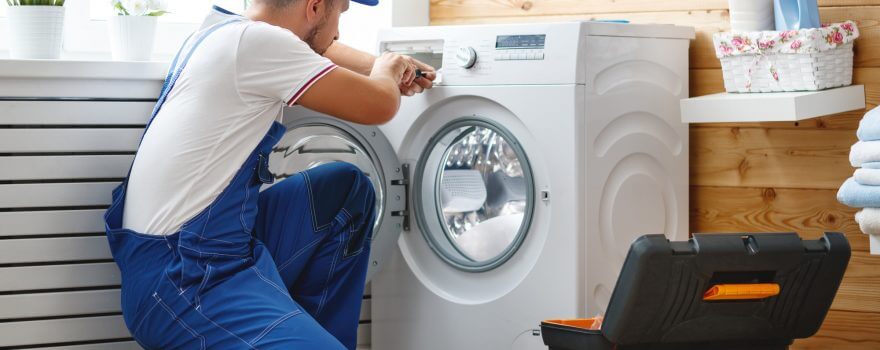Washer machines are invaluable appliances in our daily lives, making laundry tasks more convenient. However, like any other household equipment, washer machines can run into problems over time. In this article, we will discuss common washer machine repair near me, how to diagnose them, and the steps you can take to repair your washer machine at home. We will also cover some important safety precautions and preventive maintenance tips.
Common Washer Machine Issues
Leaking Water
Leaking water is a common problem in washer machines. It can be caused by a damaged hose, a loose connection, or a faulty seal. In some cases, the water inlet valve may be the culprit.
Washer Not Draining
If your washer is not draining properly, it can be due to a clogged drain pump, a malfunctioning drain hose, or an issue with the lid switch.
Unusual Noises
Unusual noises during the washing cycle can be quite perplexing. These sounds may result from foreign objects caught in the drum, worn-out bearings, or a faulty motor.
Vibrations and Shaking
Excessive vibrations and shaking can be disruptive and even damaging to your washer machine. This issue might occur due to an unbalanced load, an uneven floor, or worn-out shock absorbers.
Tools You’ll Need
Before attempting any repairs, gather the following tools and materials:
Screwdrivers
Pliers
Wrenches
Replacement parts if necessary
Safety goggles and gloves
Owner’s manual for your washer machine
Safety Precautions
Prioritize safety when working with any appliance. Always unplug your washer machine from the power source and turn off the water supply. Use safety goggles and gloves to protect yourself from any potential hazards.
Diagnosing the Problem
Let’s explore how to diagnose the common washer machine issues mentioned earlier.
Leaking Water
To identify the source of the leak, check the hoses, connections, and seals. If you find any visible damage, consider replacing the affected components. If the issue persists, the water inlet valve might need replacement.
Washer Not Draining
Start by examining the drain pump, drain hose, and lid switch. Ensure there are no clogs or obstructions. If the problem persists, consult your owner’s manual or a professional technician.
Unusual Noises
Carefully inspect the drum for foreign objects. If you find any, remove them. If the noise continues, it may be due to worn-out bearings or a faulty motor. In such cases, consider calling a professional for repair.
Vibrations and Shaking
If your washer machine shakes excessively, first check for an unbalanced load. Ensure the appliance is on a level surface. If the problem persists, worn-out shock absorbers could be the issue.
DIY Washer Machine Repair Steps
Now, let’s delve into the steps you can take to address these issues yourself.
Fixing Leaking Water
Turn off the water supply and unplug the washer machine.
Inspect the hoses, connections, and seals for damage.
Replace any damaged components.
If the problem persists, replace the water inlet valve.
Unclogging Drainage Issues
Disconnect the washer from power and water.
Check the drain pump and hose for clogs.
Remove any obstructions.
Reassemble the parts and test the washer.
Silencing Unusual Noises
Unplug the washer machine and remove any foreign objects from the drum.
If the noise persists, consider professional help for bearing or motor issues.
Preventing Vibrations
Ensure the washer is on a level surface.
Balance the load before starting the machine.
If vibrations continue, consider replacing shock absorbers.
When to Call a Professional
If you’re uncomfortable with any of the repair steps, or if the issue persists after DIY attempts, it’s best to consult a professional technician. They have the expertise and tools to handle complex washer machine problems.
Preventive Maintenance Tips
To prevent future issues, follow these maintenance tips:
Clean the lint filter regularly.
Keep the washer machine level on a stable surface.
Use the right amount of detergent and avoid overloading.
Check and tighten hose connections.
Repairing your washer machine can be a cost-effective solution, but always prioritize safety. If you’re unsure about your abilities, it’s better to consult a professional technician. Regular maintenance and a keen eye for issues can help prolong the life of your washer machine.


